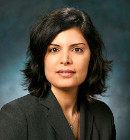Paper titled Motivations for self-assembling into project teams by Mengxiao Zhu, Yun Huang, and Noshir Contractor has been published in Social Networks, Volume 35, Issue 2, May 2013. Available at http://www.sciencedirect.com/
Paper titled Motivations for self-assembling into project teams by Mengxiao Zhu, Yun Huang, and Noshir Contractor has been published in Social Networks, Volume 35, Issue 2, May 2013. Available at http://www.sciencedirect.com/
 SONIC lab is proud to welcome Tina Eliassi-Rad, who will present a talk on Wednesday, May 8th, 2013 (12:00-01:00pm) in Chambers Hall, Lower Level, Evanston Campus. All are welcome to attend. This seminar is organized jointly with the Northwestern Institute on Complex Systems as part of the Wednesdays@NICO
SONIC lab is proud to welcome Tina Eliassi-Rad, who will present a talk on Wednesday, May 8th, 2013 (12:00-01:00pm) in Chambers Hall, Lower Level, Evanston Campus. All are welcome to attend. This seminar is organized jointly with the Northwestern Institute on Complex Systems as part of the Wednesdays@NICO
Measuring Tie Strength in Implicit Social Networks
Given a set of people and a set of events attended by them, we address the problem of measuring connectedness or tie strength between each pair of persons. The underlying assumption is that attendance at mutual events gives an implicit social network between people. We take an axiomatic approach to this problem. Starting from a list of axioms, which a measure of tie strength must satisfy, we characterize functions that satisfy all the axioms. We then show that there is a range of tie-strength measures that satisfy this characterization.
A measure of tie strength induces a ranking on the edges of the social network (and on the set of neighbors for every person). We show that for applications where the ranking, and not the absolute value of the tie strength, is the important thing about the measure, the axioms are equivalent to a natural partial order. To settle on a particular measure, we must make a non-obvious decision about extending this partial order to a total order. This decision is best left to particular applications. We also classify existing tie-strength measures according to the axioms that they satisfy; and observe that none of the “self-referential” tie-strength measures satisfy the axioms. In our experiments, we demonstrate the efficacy of our approach; show the completeness and soundness of our axioms, and present Kendall Tau Rank Correlation between various tie-strength measures. Time-permitting, I will discuss the big data issues of measuring tie-strength and applications of our work in the wild (e.g., the WaPo Social Reader).
Full paper is available at http://eliassi.org/papers/gupte-websci12.pdf
About Tina Eliassi-Rad
Tina Eliassi-Rad is an Associate Professor of Computer Science at Rutgers University. Before joining academia, she was a Member of Technical Staff and Principal Investigator at Lawrence Livermore National Laboratory. Tina earned her Ph.D. in Computer Sciences (with a minor in Mathematical Statistics) at the University of Wisconsin-Madison. Within data mining and machine learning, Tina’s research has been applied to the World-Wide Web, text corpora, large-scale scientific simulation data, complex networks, and cyber situational awareness. She has published over 50 peer-reviewed papers (including a best paper runner-up award at ICDM’09 and a best interdisciplanary paper award at CIKM’12); and has given over 70 invited presentations. Tina is an action editor for the Data Mining and Knowledge Discovery Journal. In 2010, she received an Outstanding Mentor Award from the US DOE Office of Science and a Directorate Gold Award from Lawrence Livermore National Laboratory for work on cyber situational awareness. Visit http://www.eliassi.org for more details.
 SONIC lab is proud to welcome Nicholas Berente, who will present a talk on Thursday, April 25, 2013 (05:00-06:15pm) in the Frances Searle Building, room 1.483, Evanston Campus. All are welcome to attend. If you wish to meet Dr. Berente for a 30 minute 1on1 meeting, send an e-mail to Willem Pieterson.
SONIC lab is proud to welcome Nicholas Berente, who will present a talk on Thursday, April 25, 2013 (05:00-06:15pm) in the Frances Searle Building, room 1.483, Evanston Campus. All are welcome to attend. If you wish to meet Dr. Berente for a 30 minute 1on1 meeting, send an e-mail to Willem Pieterson.
Digital Intensity and Variation in Design Routines: A Comparative Sociotechnical Sequence Analysis of Four Organizations
Organizations continue to embed increasingly richer repertoires of digital capabilities into their activities, and the impact of this digitalization on those routines is, as yet, not well‐understood. Will increased digital intensity reduce, increase, or have no effect on the variation of organizational routines? Furthermore, how is this routine variation affected by internal and external factors, such as centrality of the decision structure and volatility of the market environment? In this study, we leverage a novel sociotechnical sequence analysis technique to explore these questions in four theoretically‐sampled, design organizations (software development, semiconductor design, hydraulic valve design, and architecture). We study the context of design because of the fluidity, interactive complexity, knowledge‐intensiveness, heavy digitalization, and variation found in design activity.
Through this research, we advance a theory of “configural” routine variation – that of variation between components of routines – by examining the effects of (1) environmental variation; (2) structural variation; and (3) variation in digital intensity on routine variation. We propose that design routines are subject to greater variation between (rather than within) organizations; between (rather than within) similar environments; within more volatile environments; and within more de‐centralized organizations. Our analysis largely supports these theoretical arguments. Further, we find that increased digital intensity reduces process variation in design contexts. Overall, our analysis sheds new light on the interactions between organizational context, environment, and digitalization, and their impact on design routine variation. Our sequence‐analytic approach is founded on well‐established sequence analysis techniques widely used in the study of organizational routines, but extends these techniques with insights gained by sociotechnical scholarship for discovering the intricacies of the process context. The technique accounts for how digital artifacts and human activities become entangled in practice by detailing the activities, actors, artifacts, and affordances that comprise a sociotechnical routine. This study illustrates the valuable insights one might draw from the application of the approach in the study
of the digitalization of organizational routines.
About Nicholas Berente
Nicholas Berente is an assistant professor in Management Information Systems at the University of Georgia’s Terry College of Business. He received his PhD from Case Western Reserve University and conducted his postdoctoral studies at the University of Michigan. Dr. Berente is the principal investigator for three projects funded by the National Science Foundation investigating the management of next generation scientific research centers(NSF OCI‐1059153, RCN‐1148996, CI‐TEAM‐1240160). He has contributed to a variety of NSF‐funded projects associated with distributed, collaborative innovation in multiple contexts (NSF OCI‐0943157; SES‐0621262; CCF‐0613606; IIS‐0208963) and has focused much
of his research on information technology‐enabled innovation at NASA. He has authored more than seventy peer‐reviewed articles, and his work has been published in top journals, including MIS Quarterly, Information Systems Research, and Organization Science.
Download the flyer for this talk
[line]
Contractor delivered a webinar for the National Cancer Institute, Behavioral Research Program, Science of Research and Technology Branch, Speaker Series on “Disruptive Research Approaches from Academia, Government, and Industry” on March 28, 2013.
 SONIC lab is proud to welcome Hank Green, who will present a talk on Thursday, April 11, 2013 (04:00-05:15pm) in the Stamler Conference Room (680 N Lakeshore Drive, 14th floor), Chicago Campus. All are welcome to attend.
SONIC lab is proud to welcome Hank Green, who will present a talk on Thursday, April 11, 2013 (04:00-05:15pm) in the Stamler Conference Room (680 N Lakeshore Drive, 14th floor), Chicago Campus. All are welcome to attend.
About The Talk: Applying Network Science: An Evolving Perspective
While opinion leader and other peerbased interventions are firmly established in public health research contexts where we seek to impact individuals’ behaviors, developments in network analytic methods have led to changes in the way we understand peer influence and selection processes and in the way we can apply network studies for intervention development. I will present my framework for understanding networkbased interventions and describe how that framework has evolved in light of new network statistical approaches. I will illustrate this evolutionary process with examples of crosssectional and longitudinal studies that link individual behaviors and attitudes to network structure and composition. I conclude with some discussions of future directions in research and in application.
About Hank Green
Harold D. Green, Jr. (Hank) is a Senior Behavioral Scientist at the RAND Corporation in Santa Monica, where he is the coordinator of the RAND Applied Network Analysis Research Group. Hank uses network analyses to understand the social and cultural determinants of health. In addition to his applied work, Hank is active in designing and implementing specialized software for the collection of longitudinal personal network data via the Internet. He holds a Ph.D. in Anthropology from the University of Florida and is an Alumnus of the University of Illinois Training Grant in Quantitative Psychology, of the National Center for Supercomputing Applications Center for the Humanities, Arts and Social Sciences, and of the Science of Networks in Communities Research Group.